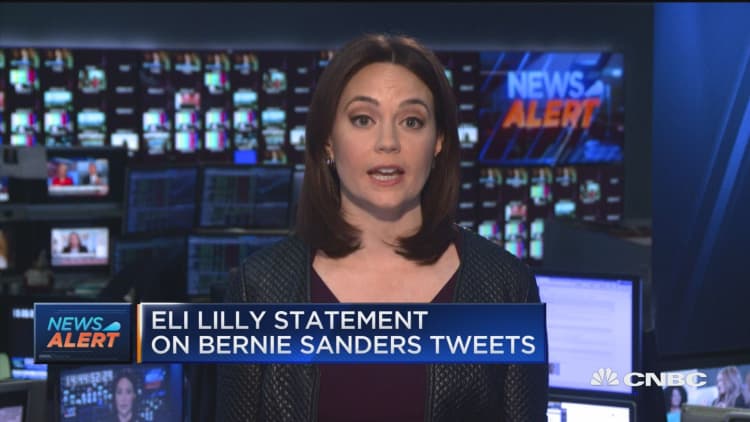
Shares of pharmaceutical company Eli Lilly initially fell more than 1 percent after Sen. Bernie Sanders tweeted Tuesday about the price of Lilly's Humalog insulin.
Sanders shared a graphic from a story by The Washington Post that looks at why the price of insulin continues to rise. Eli Lilly's stock is down more than 6 percent over the last week.
Sen. Sanders also tweeted about Novo Nordisk and policies regarding drug importation. The stock was down more than 12 percent in the last week after increasing pressure on insulin drugmakers.
Sen. Sanders had previously tweeted about the price of Ariad Pharmaceutical's leukemia drug, sending its shares down more than 15 percent at the time. Tuesday, Sanders tweeted out a fully produced, nearly 3 minute-long video attacking Eli Lilly and Novo Nordisk:
Eli Lilly told CNBC the company is committed to doing its part to give patients reasonable access to the treatments they need, but added there's no easy answer to lowering the price of drugs.
"A permanent solution that gives everyone who uses insulin reasonable access will require leadership and cooperation across many stakeholders, including manufacturers, PBMs, payers, and policymakers," the company said.
Eli Lilly also noted that while the list price for Humalog has gone up, the company receives a lower average net price now than it did in 2009. The company said its third-quarter earnings report on October 25 showed the insulin's U.S. revenue fell 14 percent, driven by a 24 percent decline in net price.
—CNBC's Meg Tirrell contributed to this report.


